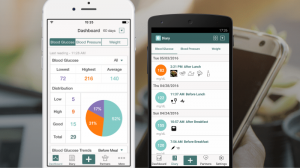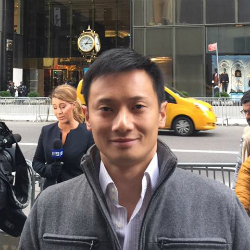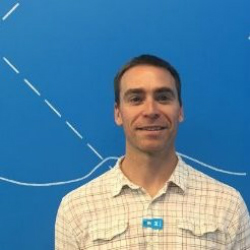
“In our work helping over 300,000 diabetes sufferers, patients have told us they are open to helping medical research,” said Ed Deng, CEO at Health2Sync. “However, they are greatly concerned about their privacy and cannot risk any situation in which their personal information can be used against them through data leaks or hacks. Because of this, many patients remain inaccessible to researchers. Our vision is to enable an ecosystem of diabetes patients helping researchers in all parts of the world. Diabetes affects over 400 million people and is considered the fastest-growing health crisis of our time. Creating this trust using Bitmark’s blockchain technology allows us to present research opportunities to new participants by giving them control over their personal privacy and ownership over their data.”

The Health2Sync data trust
Health2Sync provides a comprehensive health-management platform for diabetics. Its products combine mobile, cloud and data analytics. The combination enables:
- patients to obtain personalised care
- care providers and family to care for patients remotely.
Health2Sync’s diabetes data trust provides a private, equitable way for individuals, researchers and companies to exchange diabetes health data. Patients and researchers from any diabetes healthcare app, care provider, institution or advocacy group can apply to participate.
The Health2Sync diabetes data trust separates itself from conventional medical research databases by:
- giving patients full control and ownership of medical records
- securing patient data on a distributed blockchain (instead of on a private company server)
- speeding up payments to patients for research performed with their data.
Diabetes research participants can use Health2Sync’s HealthPass mobile app. This is ‘armoured’ by Bitmark’s blockchain-secured technology and enables patients to upload medical data into the diabetes data trust:
- patients then control who has access to medical records
- researchers benefit by having access to a new worldwide patient record database
- processing of payments to patients (from researchers accessing the aggregated dataset) comes from CTBC Bank’s technology.
The Bitmark dimension
Bitmark’s technology enables data-science computations – including artificial intelligence (AI) and machine learning (ML) – to run on the data within the trust, while preserving participant privacy. By using a blockchain, costs that institutions typically pay to legal administrators reduce. The consequent savings pass to research participants.
Currently, while many datasets are available in healthcare, these are held by governments, institutions or data resellers. Such datasets have, typically, scope limits and are expensive to aggregate.
With the new Health2Sync diabetes data trust, researchers will be able to draw from a diverse range of worldwide research populations participating via mobile phone. This will be a rarity in such studies. Combining health records with new health-sensor and Internet of Things (IoT) data – such as from Apple Watch and Fitbit wearables – should provide a broader view of the individual over longer periods of time.
Bitmark has already used its technology to speed royalty payments to musicians. It accomplished this by developing a paper-free blockchain system which:
- enforces the property rights to music
- tracks when billing for royalty payments should occur (and then ensures these are received).

Sean Moss-Pultz, CEO at Bitmark said, “Bitmark’s mission is to help individuals and institutions define data as property in order to facilitate legal transactions at costs accessible to anyone around the world.
“Nobel Prize winner Ronald Coase postulated that clear and easily transferable property rights allow economic activity to take place by removing the friction of negotiating and enforcing contracts — this trust for health data is a perfect example of Coase’s theorem actualized in the real world.”
Enterprise Times: what does this mean
There is no shortage of medical data in the world. But this tends to be ‘locked’ up in restrictive national or local systems. Combine such a distribution with the need to ensure and preserve data privacy and you have a recipe for data gridlock: few can afford to put together the access authorisations necessary to accomplish good research.
This is why this blockchain-based data trust may be groundbreaking. It enhances diabetes research by:
- securing patient medical records
- speeding data access
- rewarding patients for access to their data
- streamlining payments.
With a network of clinics and hospitals, Health2Sync is an Asian (Taiwanese) solution. Its vision is to bring an effective, yet scaleable, solution to diabetes management that reaches beyond its Asian heritage. Maybe there will be global clues in the search for diabetes cures and prevention? And it is not alone: other seeking to exploit blockchain use in the medical environment include (for example) TrustedHealth, Rati-fy or Iryo.


























